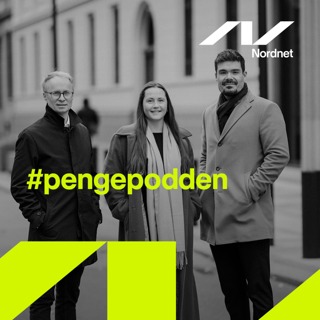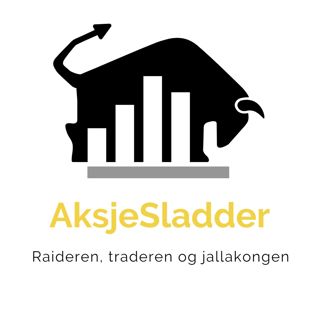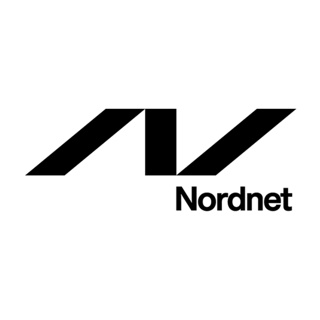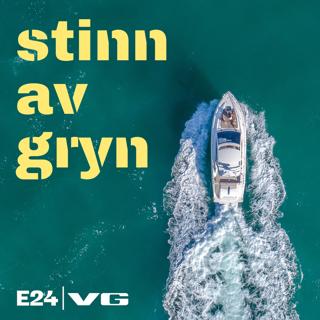
a16z Podcast: Advertising vs. Micropayments in the Age of Ad Blockers
Apple included support for ad blocking in its recent iOS 9 update, and for many that prompted discussions around an age-old question: Is traditional advertising a viable business model for content -- and if it isn’t, what has a shot at replacing it? In this segment of the a16z Podcast [and one of our first podcasts 'by request'], Chris Dixon (who led our BuzzFeed investment and has previously shared his thoughts on the topic) and Benedict Evans (who has also been an independent content site producer himself and has shared some of his thoughts on the topic) discuss the future of advertising; why micropayments have been mostly a non-starter until now; the chicken-egg issue; and which alternative forms of advertising -- native ads, for example -- are showing promise. Finally, why quality media outlets will do extremely well once the industry comes out on the other side of this wrenching transitional period. The views expressed here are those of the individual AH Capital Management, L.L.C. (“a16z”) personnel quoted and are not the views of a16z or its affiliates. Certain information contained in here has been obtained from third-party sources, including from portfolio companies of funds managed by a16z. While taken from sources believed to be reliable, a16z has not independently verified such information and makes no representations about the enduring accuracy of the information or its appropriateness for a given situation. This content is provided for informational purposes only, and should not be relied upon as legal, business, investment, or tax advice. You should consult your own advisers as to those matters. References to any securities or digital assets are for illustrative purposes only, and do not constitute an investment recommendation or offer to provide investment advisory services. Furthermore, this content is not directed at nor intended for use by any investors or prospective investors, and may not under any circumstances be relied upon when making a decision to invest in any fund managed by a16z. (An offering to invest in an a16z fund will be made only by the private placement memorandum, subscription agreement, and other relevant documentation of any such fund and should be read in their entirety.) Any investments or portfolio companies mentioned, referred to, or described are not representative of all investments in vehicles managed by a16z, and there can be no assurance that the investments will be profitable or that other investments made in the future will have similar characteristics or results. A list of investments made by funds managed by Andreessen Horowitz (excluding investments and certain publicly traded cryptocurrencies/ digital assets for which the issuer has not provided permission for a16z to disclose publicly) is available at https://a16z.com/investments/. Charts and graphs provided within are for informational purposes solely and should not be relied upon when making any investment decision. Past performance is not indicative of future results. The content speaks only as of the date indicated. Any projections, estimates, forecasts, targets, prospects, and/or opinions expressed in these materials are subject to change without notice and may differ or be contrary to opinions expressed by others. Please see https://a16z.com/disclosures for additional important information.
25 Sep 201525min

a16z Podcast: Building the Right Technical Advisory Board
There is increasing interest among companies -- small and large -- in putting together technical advisory boards. It sounds pretty straightforward: get some senior technical experts to help with the technical speed bumps. But if that is all your technical advisory board is, you are missing out. Built and utilized correctly, a technical advisory board can be a huge advantage when it comes to mapping out a long-term strategic plan, finding talent, and building a great engineering culture. On this segment of the a16z Podcast we break down the right way to build a technical advisory board; what you should expect from the board (and just as important, what you shouldn’t). And for those looking to serve on a technical advisory board, the reasons to do it, as well as the things to consider before committing. This conversation was recorded as part of an event featuring four technical experts: Arnie Goldberg from PayPal; Purnima Padmanabhan, former CEO of Cavirin; Alex Roetter, SVP of Engineering at Twitter; and a16z General Partner Peter Levine.
21 Sep 201535min

a16z Podcast: Making the Case for Permissionless Innovation
The internet as it has evolved in the United States is perhaps the best example of “permissionless innovation” -- the idea that you can innovate without first waiting for permission or clearance. And so academics, entrepreneurs, and people took up the internet, developed technologies over it, and in the process created fantastically valuable companies that are now household names around the world. But such innovation hasn't happened outside the U.S., argues Adam Thierer -- research fellow with the Technology Policy Program at the Mercatus Center at George Mason University -- because other regions have reversed the model of "innovate first, regulate later" (or rather, regulate only as necessary and if not already covered by existing laws). Thierer, who has also authored a book on Permissionless Innovation, joins this segment of the a16z podcast to discuss "technopanic" cycles; emerging areas of interest; and where "best practices" help ... or hurt when it comes to soft regulation.
17 Sep 201522min

a16z Podcast: The Best Way To Be Smart ... Is To Not Be Stupid
Legendary investor Charlie Munger (Warren Buffett's financial partner and vice chairman of Berkshire Hathaway) invokes a set of interdisciplinary "mental models" involving economics, business, psychology, ethics, and management to keep emotions out of his investments and avoid the common pitfalls of bad judgment. In a new book focused on lessons learned from Munger, Tren Griffin (who works at Microsoft and has long focused on lessons learned from many investors) shares insights on decision making and the psychology of human judgment -- especially as it applies to investing and risk. But Griffin believes that these lessons can be applied to all of us in our daily lives, not just by investors. (He also argues that investing may be one of the last liberal arts). So how then do we channel our inner Munger? In this episode of the a16z Podcast, we discuss how to think about thinking; why the best investors and business leaders spend more time on what they DON’T know; and how the best way to be smart is to ... not be stupid.
11 Sep 201532min

a16z Podcast: Apple Has Lock on Luxury Smartphones, But Not Business of TV
Apple has once again shown it absolutely dominates the high-end for smartphones, and no other company is likely to knock it from its perch in the near term, says a16z's Benedict Evans. But does it control the future of TV? Not yet. Evans breaks down the latest Apple event, filled with iPhones, iPads and Apple TV, in this segment of the a16z Podcast. Why the "3D Touch" Apple is featuring on its 6S phones is something only Apple could have pulled off, and why its latest iPad -- the Pro -- creeps into the PC market.
10 Sep 201526min

a16z Podcast: Code and Culture in South Central Los Angeles
South Central Los Angeles -- which includes Watts and Compton -- in many ways still hasn’t recovered from the Rodney King riots of 1992. In South Central L.A. there isn’t the same opportunity found elsewhere in L.A. When Oscar Menjivar returned as an adult to his South Central community, what he found were too many teens facing options that went from bad to worse. He decided to attack the lack of possibilities through coding.
7 Sep 20157min

a16z Podcast: Crypto, Security, CS, Quantum Computing, and More with Our New Professor-in-Residence
Many of the most successful companies have their foundations in university labs -- from data science to the web browser itself. Yet the process of moving from research project to successful startup isn't always straightforward. With the goal of smoothing this process and continuing to bridge entrepreneurs across academia and industry, we began the a16z Professor-in-Residence program just last year. And this year's newly anointed Andreessen Horowitz Distinguished Visiting Professor of Computer Science is Dan Boneh, Professor of Computer Science and Electrical Engineering at Stanford University as well as Co-director of the Stanford Computer Security Lab. In this episode of the a16z Podcast, we sit down with Boneh to chat about applied vs. theoretical math and computer science; what's missing and what's next with "usable" security (including various authentication approaches); and current and future trends in cryptography, bitcoin, and more. Boneh also shares his thoughts on MOOCs (massive open online courses) as the "21st century version of the textbook". Oh, and on when quantum computing will finally happen... and why we should (and shouldn't!) freak out about it. Yet. The views expressed here are those of the individual AH Capital Management, L.L.C. (“a16z”) personnel quoted and are not the views of a16z or its affiliates. Certain information contained in here has been obtained from third-party sources, including from portfolio companies of funds managed by a16z. While taken from sources believed to be reliable, a16z has not independently verified such information and makes no representations about the enduring accuracy of the information or its appropriateness for a given situation. This content is provided for informational purposes only, and should not be relied upon as legal, business, investment, or tax advice. You should consult your own advisers as to those matters. References to any securities or digital assets are for illustrative purposes only, and do not constitute an investment recommendation or offer to provide investment advisory services. Furthermore, this content is not directed at nor intended for use by any investors or prospective investors, and may not under any circumstances be relied upon when making a decision to invest in any fund managed by a16z. (An offering to invest in an a16z fund will be made only by the private placement memorandum, subscription agreement, and other relevant documentation of any such fund and should be read in their entirety.) Any investments or portfolio companies mentioned, referred to, or described are not representative of all investments in vehicles managed by a16z, and there can be no assurance that the investments will be profitable or that other investments made in the future will have similar characteristics or results. A list of investments made by funds managed by Andreessen Horowitz (excluding investments and certain publicly traded cryptocurrencies/ digital assets for which the issuer has not provided permission for a16z to disclose publicly) is available at https://a16z.com/investments/. Charts and graphs provided within are for informational purposes solely and should not be relied upon when making any investment decision. Past performance is not indicative of future results. The content speaks only as of the date indicated. Any projections, estimates, forecasts, targets, prospects, and/or opinions expressed in these materials are subject to change without notice and may differ or be contrary to opinions expressed by others. Please see https://a16z.com/disclosures for additional important information.
5 Sep 201547min

a16z Podcast: Hard Forks, Hard Choices for Bitcoin
a16z’s Chris Dixon and Mike Hearn talked about all things bitcoin on the a16z Podcast a couple months ago, including an issue that has bitcoin developers on edge these days: the question of how best to scale the bitcoin blockchain before capacity runs out. Hearn and others offered a solution (Bitcoin XT) -- in the parlance, a “hard fork” -- and quite frankly, not everyone in the bitcoin community is in favor of this approach yet. Which we heard about from various online quarters! So in the interest of airing diverse opinions and other options for solving bitcoin’s scaling problem, we invited two more experts from the bitcoin world, Adam Back and Alex Morcos, to share their views on the topic. A well-known applied cryptographer whose longtime focus has been digital currency, Back invented hashcash, a proof-of-work system used in bitcoin mining. He’s also the cofounder of Blockstream (which, full disclosure, may also have interests in the outcomes of this debate). Morcos is the founder of Chaincode Labs, based in New York City, and was a co-founder of quantitative trading company Hudson River Trading. The views expressed here are those of the individual AH Capital Management, L.L.C. (“a16z”) personnel quoted and are not the views of a16z or its affiliates. Certain information contained in here has been obtained from third-party sources, including from portfolio companies of funds managed by a16z. While taken from sources believed to be reliable, a16z has not independently verified such information and makes no representations about the enduring accuracy of the information or its appropriateness for a given situation. This content is provided for informational purposes only, and should not be relied upon as legal, business, investment, or tax advice. You should consult your own advisers as to those matters. References to any securities or digital assets are for illustrative purposes only, and do not constitute an investment recommendation or offer to provide investment advisory services. Furthermore, this content is not directed at nor intended for use by any investors or prospective investors, and may not under any circumstances be relied upon when making a decision to invest in any fund managed by a16z. (An offering to invest in an a16z fund will be made only by the private placement memorandum, subscription agreement, and other relevant documentation of any such fund and should be read in their entirety.) Any investments or portfolio companies mentioned, referred to, or described are not representative of all investments in vehicles managed by a16z, and there can be no assurance that the investments will be profitable or that other investments made in the future will have similar characteristics or results. A list of investments made by funds managed by Andreessen Horowitz (excluding investments and certain publicly traded cryptocurrencies/ digital assets for which the issuer has not provided permission for a16z to disclose publicly) is available at https://a16z.com/investments/. Charts and graphs provided within are for informational purposes solely and should not be relied upon when making any investment decision. Past performance is not indicative of future results. The content speaks only as of the date indicated. Any projections, estimates, forecasts, targets, prospects, and/or opinions expressed in these materials are subject to change without notice and may differ or be contrary to opinions expressed by others. Please see https://a16z.com/disclosures for additional important information.
2 Sep 201527min





















